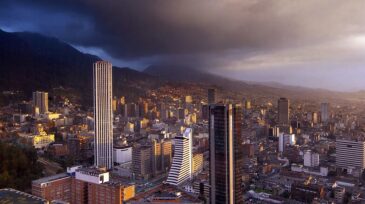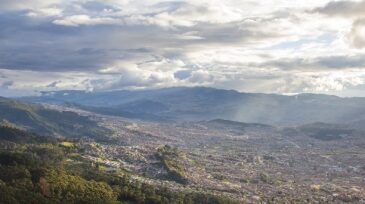SPE event
-
The 2020 SPE International Conference and Exhibition on Health, Safety, Environment, and Sustainability initially was planned to be held in Bogota, Colombia. The pandemic forced a last-minute change to virtual, but that did not slow down the networking or free flow of vital information.
-
Health, safety, and environment leaders from around the world logged on for SPE’s first virtual HSE conference on 27 July. The opening ceremony skipped the usual pomp in favor of socially distant presentations over video.
-
For the first time, attendees will have open access to both societies’ technical programs, a combined exhibit floor, and joint networking events.
-
In this episode, we discuss some of the latest research and emerging techniques that were shared at the industry’s leading hydraulic fracturing gathering earlier this year.
-
The SPE International Conference on Health, Safety, Environment, and Sustainability which was set for 17–19 March in Bogotá, Colombia, has been rescheduled for 28–30 July.
-
The 2020 SPE International Conference and Exhibition on Health, Safety, Environment, and Sustainability will be held in conjunction with the SPE Latin American and Caribbean Petroleum Engineering Conference. Early registration is open until 19 February.
-
SPE’s 2020 International Conference and Exhibition on Health, Safety, Environment, and Sustainability is scheduled for 17–19 March in Bogotá, Colombia. In this video, SPE Technical Director Johana Dunlop explains why all HSE and sustainability practitioners should try to attend.
-
The shale sector is seeking answers to a complex issue involving casing deformations that block access to long sections of a lateral. As opposed to frac hits, this rising problem is considered to be an intrawell phenomena.
-
Seven outstanding young professionals have been selected as finalists for the award, which will be presented at the SPE International Conference and Exhibition on Health, Safety, Environment, and Sustainability in Bogotá, Colombia.
-
As companies look to reduce the time it takes to inspect a subsea pipeline, as well as the costs involved in the operation, autonomous systems have become a more desirable option. How close are they to becoming the norm?









